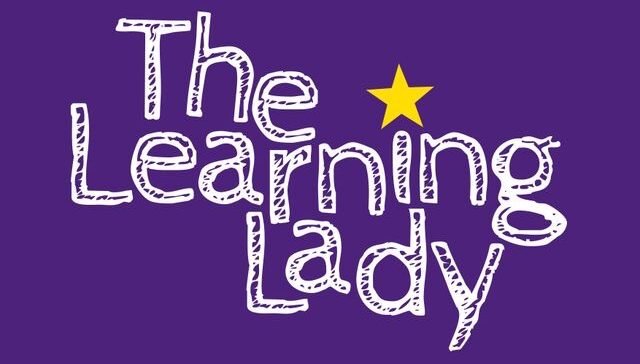The most common way of spelling the OE sound or phoneme is with an OA. This is usually taught in Reception Class. You’ll normally find OA in the middle of words like; coat, boat, goat, float and throat.
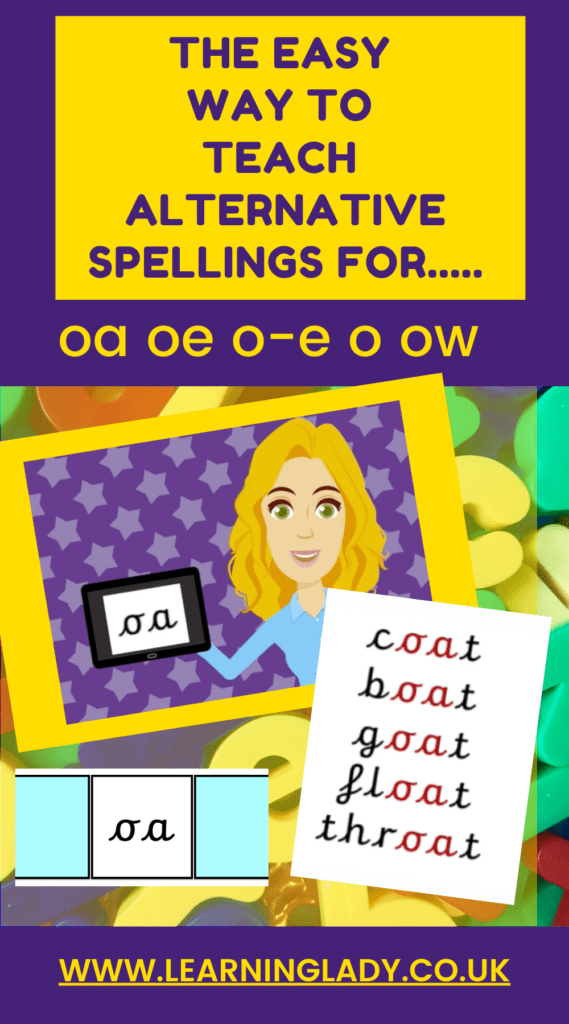
OE is another way of spelling the OA sound or phoneme. This is mostly found at the end of words. These words are quite rare, but can include words like toe, doe, hoe, foe and Joe.
Try to avoid words like toes or potatoes, because these disprove the rule. This just creates an extra layer of learning and confusion at this early stage.
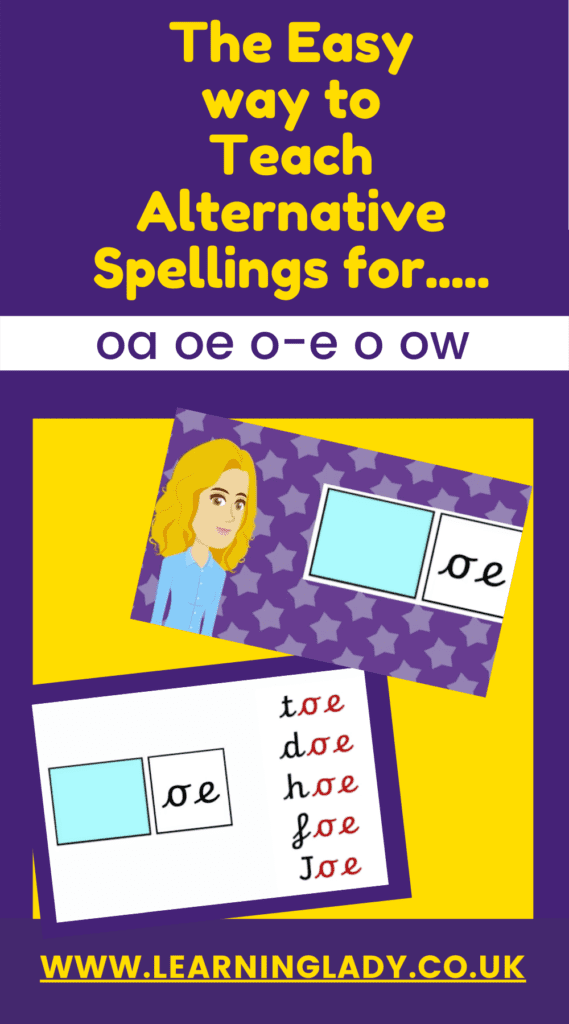
Once the children understand that an OE makes the OA sound, it is easy to teach the next spelling alternative. This is the split digraph O-E, where the OE are split, with a letter squeezed in the middle. Words you’ll recognise with the O-E split digraph include bone, home, rope, hope, or longer words like stone or alone.
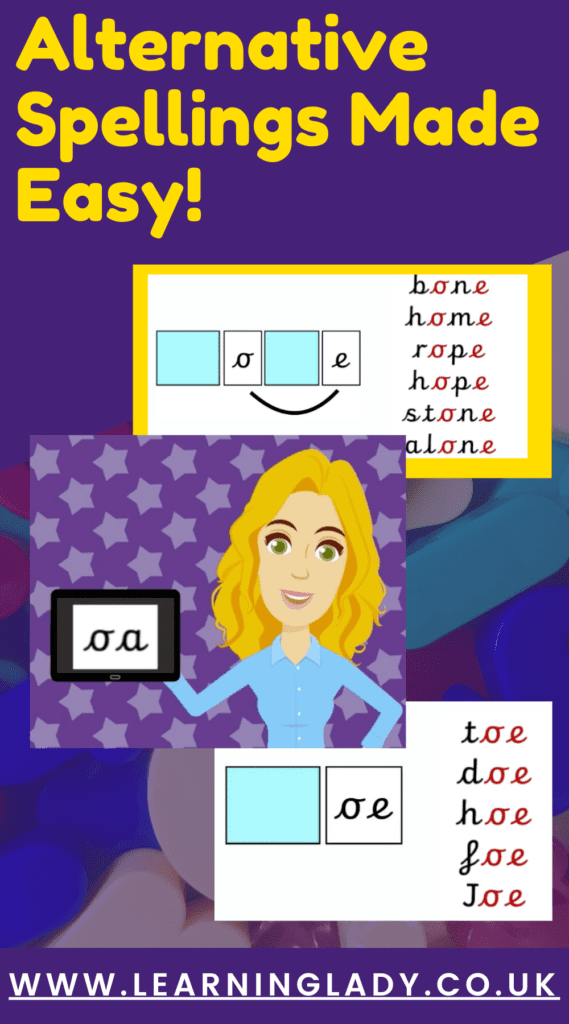
Exception words to avoid at this stage include words like shone and gone. These disprove the rule and can be taught at a later stage, once this initial rule is secure.
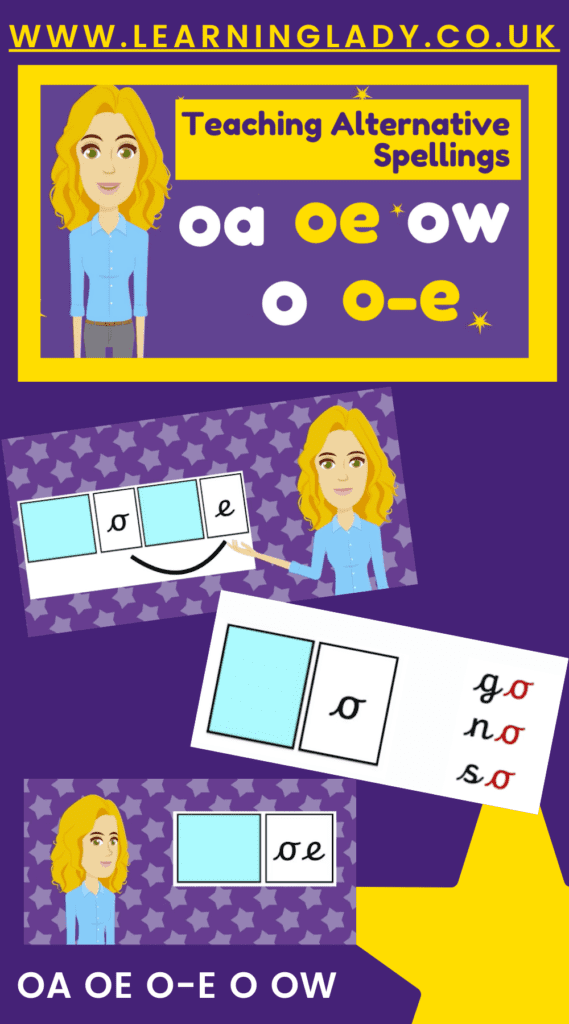
Children also need to learn when to pronounce the letter O by its sound ‘o’, and when to pronounce its letter name O . They need to have a basic understanding of syllables as beats in a word at this stage.
O, is usually pronounced as it’s letter name, rather than its letter sound, at the end of one syllable words. Words like go, no and so.
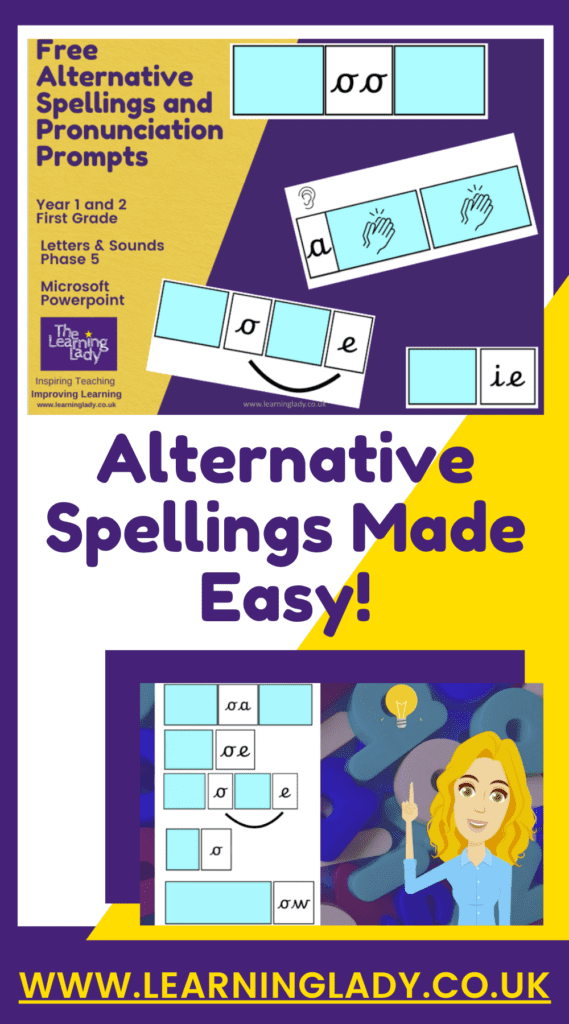
The final, most tricky spelling alternative for the OE sound or phoneme, is when we use an OW to make the OA sound at the end of words, like in snow. This is especially tricky as the children will already know that OW makes an ow, like in cow.
OW is the most common way of making the OA sound or phoneme at the end of words.
It generally makes the ‘ow’ sound at the end of words when it follows just 1 consonant like how cow now and bow.
In words where there is an OW ending, following more than one consonant, the OW is more likely to be pronounced as, OA, like in blow snow grow show or glow.
It’s best to steer clear of exceptions, like low, where the OW is only proceeded by one consonant, but still says OA. Or allow, where the OW makes the OW sound, but is proceeded by more than one consonant.
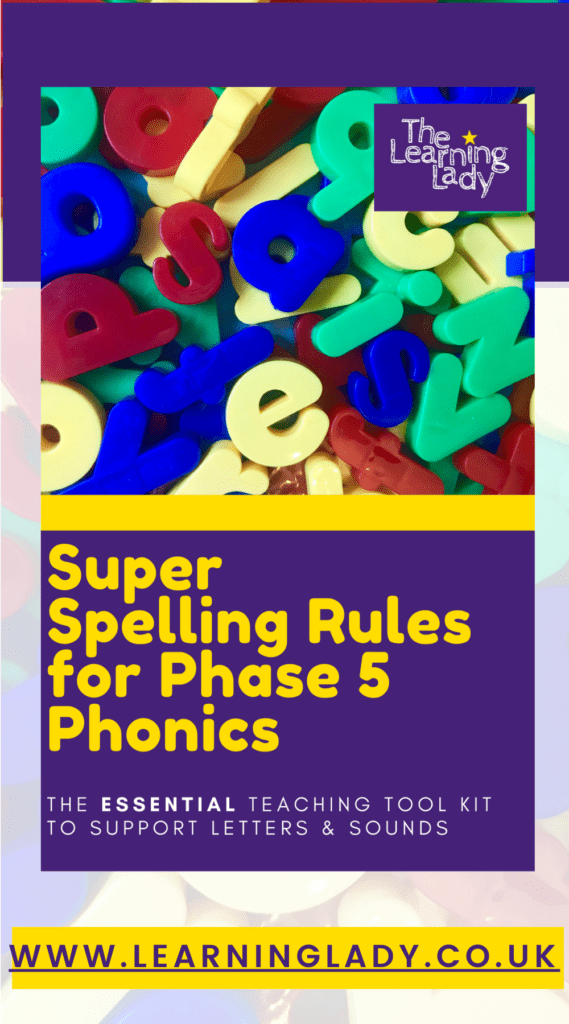
For all of the spelling rules and alternative pronunciations of sounds you’ll need to teach Letters and Sounds Phase 5 SPECTACULARLY WELL, Download my FREE PDF Super Spelling Rules guide now. It includes:
Easy, plain English, explanations of all of the rules you’ll need
Lists of words which prove each rule
Exceptions to avoid
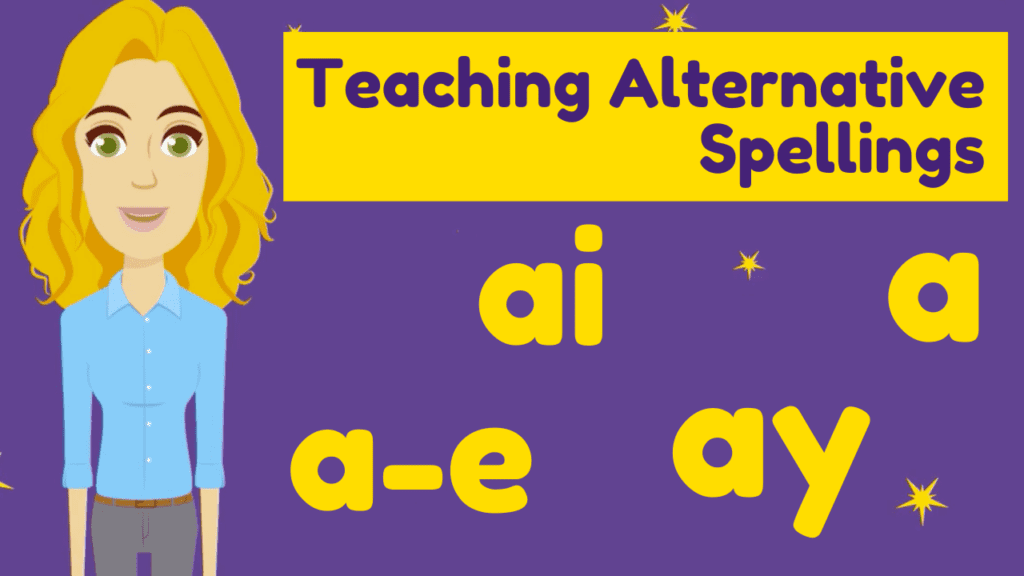
Don’t forget there are more spelling rules and alternative pronunciations to master when you’re explaining Phase 5 Phonics.
Check out these rules to teach the most common spelling choices in Phase 5 SPECTACULARLY WELL!
Alternative spellings and rules to teach the AI sound
Spelling alternatives for the EA phonics sound Phase 5
Alternative spellings for IGH phonics in Phase 5
Alternative spellings for IR words in phonics Phase 5
